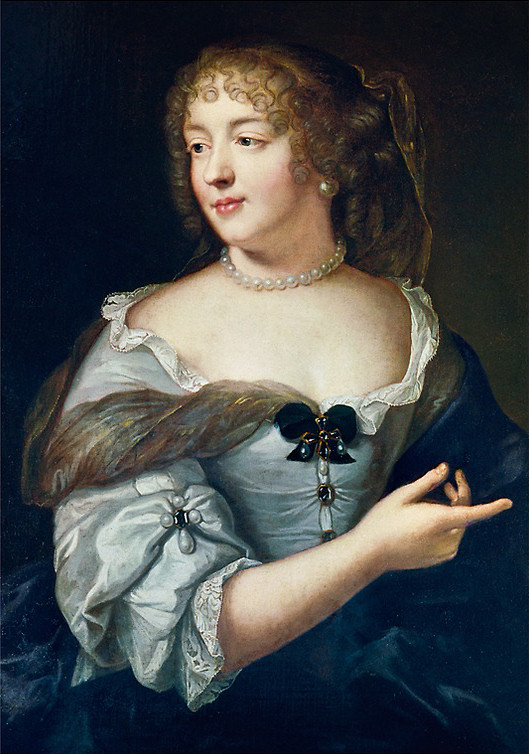
The relationship between the Marquise de Sévigné and the Guitauts goes back to the 1670s, perhaps even earlier. They were neighbours in Paris and in February 1671 she told her daughter, Madame de Grignan, about the fire at the Hotel Guitaut in the middle of the night: how everyone had ended up in the street in their underwear and how she had tried to help them.
But it was mainly in Bourbilly and Epoisses that friends met. En octobre 1673, venant de Grignan, Mme de Sévigné arrive à Bourbilly. The next morning, a rider arrived in Bourbilly in the pouring rain “wet as a duck”. It was Guillaume de Guitaut who came to surprise her. “A six-horse carriage enters the courtyard and Guitaut laughs. I see at the same time the countess of Fiesque and Mme de Guitaut who embrace me”. Three days after this impromptu visit, Mme de Sévigné, having finished her business, came to join her friends at Epoisses: “This house is of surprising grandeur and beauty. M. de Guitaut has a lot of fun adjusting it and spends a lot of money on it… The master of the house and I talked endlessly, that is to say I had the merit of being a good listener. You could spend many days in this house without getting bored.
On August 21, 1677, Mme de Sévigné wrote from Epoisses to Mme de Grignan: “We arrived here yesterday evening at two o’clock in the night. We thought of pouring a thousand times into the ravines, which we would have avoided very easily if we had only had a small candle in a small candlestick, but it is a beautiful thing to see neither sky nor earth. At last we sent here for help, where we arrived as the master of the house was about to go to bed. […] You know the master and the good air and good spirit he has for those he loves a little; he assures me that I am one of them and I believe it by the friendship he has for you. […] Our conversations are endless, he likes to talk and when I am put to the task of talking, I do not do too badly either, so that we cannot be better together than we are here. Translated with www.DeepL.com/Translator (free version)
To end this pleasant stay, Guillaume de Guitaut decided to accompany Mme de Sévigné and her uncle Coulanges “le Bien Bon” to Saulieu. Together they write to Mme de Grignan.
Mme de Sévigné begins: “Finally, I have left Epoisses but I have not yet left the master of this beautiful castle. He came to lead me here. There is nothing so easy as to love him, you know him”.
Guitaut takes up his pen: “At last we are separating tomorrow […]. I could not bring myself not to sleep with her again tonight and came to accompany her to the first cottage. Finally, once again we are leaving each other with regret, it seems to me”.
Mme de Sévigné takes it from him: “He is very wise, this man. However, I said to him earlier, seeing him awake like a pot of mice: “My poor sir, it is still very early in the morning to go to bed, you are still very green, my friend, there is a lot of the old man, that is to say, a lot of the young man in you.
Guitaut laughs gently at her: “You will never silence Madame your mother… I will finish by assuring you that at the moment, your good Mother is between two wines. Goodbye Vichy water, I don’t think, if she continues, that she should go there, it would be a waste of money.
Mme de Sévigné defends herself: “It is he who has taken too much; as for me, I have taken some too. They are so long at the table that for contentment, we drink, and we drink again and we find ourselves with an extraordinary gaiety”.
Guitaut wisely concludes: “After all our follies, all counted and all brought down, I am going to sleep with the Good One.
In 1680, Mme de Sévigné learned of the birth of a boy to the Guitauts: “Finally, Sir, you have a boy; keep him well because you don’t make them when you want. […] but what do all the little chicks say about having this little rooster at their head? It seems to me that I see them all shining around him.
There were still many exchanges of letters between these old friends. After Guillaume’s death, Mme de Sévigné continued her good relations with his wife. She asked him to supervise the management of Bourbilly, where she no longer went, and Mme de Guitaut did not fail to do so until the Marquise’s death in 1696.
© 2023 Château d’Epoisses. | All rights reserved
Adresse
1 Rue de Semur, 21460 Époisses, Bourgogne-Franche-Comté
visites@chateaudepoisses.com
03 80 96 40 56